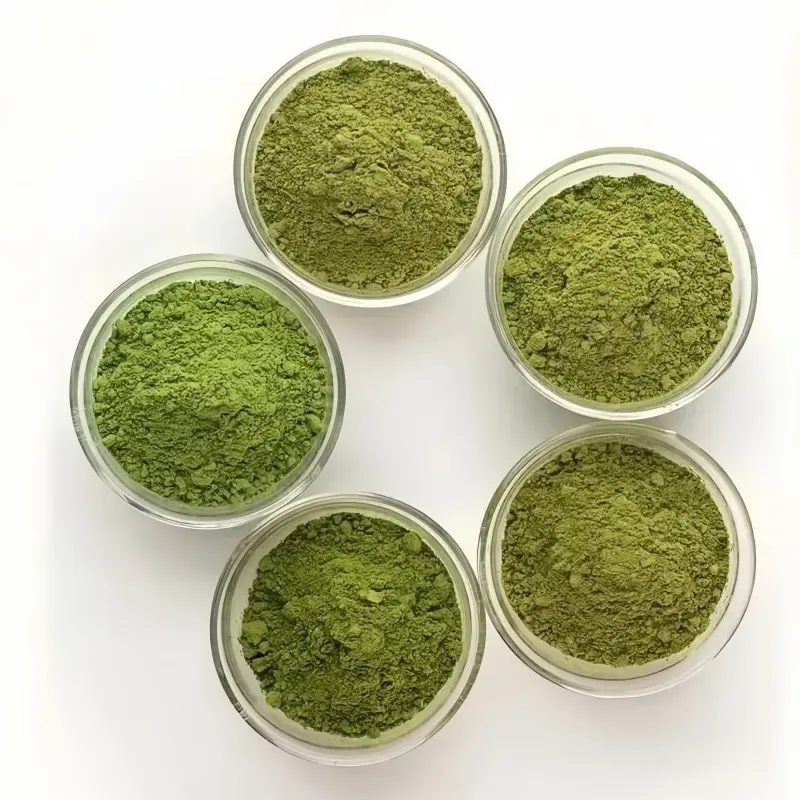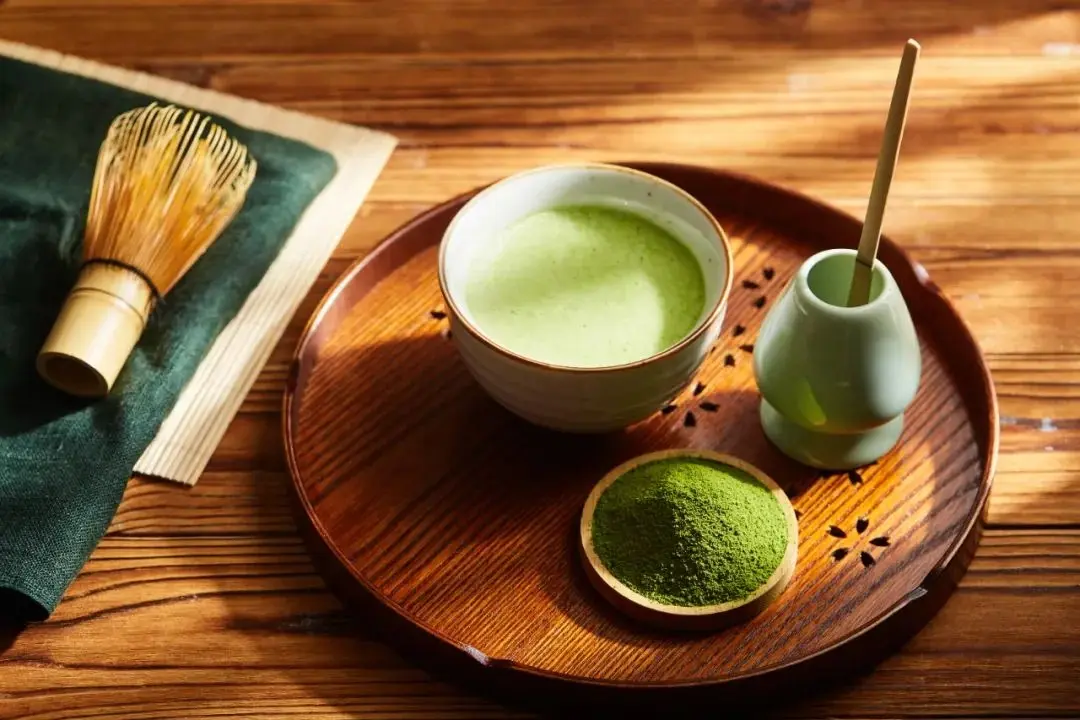A Comprehensive Guide to Matcha Grades and Benefits
The popularity of Matcha has surged in recent years, moving beyond a secret of the Japanese tea ceremony. However, with this expansion comes confusion over the various different types of Matcha. To fully leverage this powerful green tea, it's vital to understand its grades, harvest seasons (first vs second harvest Matcha), and how they influence taste and health benefits. This guide aims to holistically break down the world of Matcha, from the most exquisite ceremonial grade to everyday culinary uses, ensuring you select the best type of Matcha powder for your needs.
Understanding the Differences
The quality of Matcha is distinguished by how it is processed, when it is harvested, and its final taste profile. Understanding the difference in Matcha grades is key to selecting the right product.
Ceremonial Grade Matcha
Ceremonial Grade Matcha is universally considered the highest grade. It is designed purely for straight consumption, especially in the traditional Japanese tea ceremony. It's made from the youngest leaves (Ichibancha) of the first annual harvest, resulting in a vibrant green color, a fine texture, and rich Umami with virtually no bitterness. It is best suited for the traditional preparation of Usucha and Koicha.
Usucha vs. Koicha
These two preparation styles further highlight the grade difference. Usucha is a thin, whisked tea commonly prepared with Ceremonial Grade Matcha. Koicha is a much thicker, syrupy consistency traditionally used in formal ceremonies, whose density demands the absolute highest quality Matcha.
Premium/Daily Grade Matcha
This grade’s quality sits between ceremonial and culinary grades. It is an ideal choice for daily drinking and excels in Matcha lattes. It may be a blend of first and second harvest leaves, offering moderate Umami and a stronger flavor that holds up well when mixed with milk or sweeteners.
Culinary Grade Matcha
Culinary Grade Matcha is made from later-harvested leaves (Nibancha or later) and is intended for mixing with other ingredients. Its stronger, sometimes more bitter profile is essential for the flavor to stand out in baking, smoothies, and cooking, making it the most functional option of the different grades of Matcha powder. Knowing what are the different Matcha grades ensures you buy the right product.
First Harvest vs. Second Harvest
The difference between first vs second harvest Matcha is a critical determinant of the final product's quality.
Ichibancha (First Harvest) Defined
This refers to the first plucking of the tea leaves in spring, usually between April and May. As the tea plant's first new growth after winter dormancy, the leaves are tender, soft, rich in amino acids (like L-Theanine), and boast a vibrant green color. It forms the backbone of Ceremonial Grade Matcha.
Nibancha (Second Harvest) Defined
The second harvest takes place in the summer, typically June to July. These leaves grow more quickly and are more mature, containing higher levels of catechins but fewer amino acids than the first flush.
Color and Taste
The high amino acid content in Ichibancha gives Matcha its signature sweetness, Umami, and smooth mouthfeel, while its vibrant green color is visually appealing. The higher catechin content in Nibancha, however, results in a more bitter taste and a slightly yellowish hue, which helps us differentiate what are the grades of Matcha.
The Comprehensive Health Benefits of Matcha
Matcha is more than just a delicious beverage; it is a powerful superfood that offers a spectrum of notable health advantages, answering the question is Matcha powder good for you.
Detoxification and Metabolic Support
Due to its high concentration of antioxidants, particularly EGCG (a catechin), Matcha helps support the body's natural detoxification processes. These compounds support liver function and promote metabolic health due to their potential thermogenic properties. This explains why many ask, is Matcha good for detox.
PCOS and Hormonal Health
Research suggests that Matcha may offer benefits for individuals with Polycystic Ovary Syndrome (PCOS). It is believed to improve insulin sensitivity and aid in hormonal balance due to its anti-inflammatory properties. While not a cure, incorporating Matcha can provide beneficial nutritional support for Matcha benefits for pcos as part of a comprehensive health strategy.
Enhanced Focus and Mood
Matcha contains a unique combination of caffeine and L-Theanine. L-Theanine, an amino acid, promotes a state of calm alertness, mitigating the jitters often associated with caffeine. This synergy not only boosts focus and productivity but also adds to the holistic benefits of Matcha powder health.
Conclusion
Understanding the different types of Matcha and their uses is essential. Whether it's for the pure experience of the traditional tea ceremony, the robust flavor of a daily latte, or the intense color required for baking, the difference in grades (Ceremonial Grade, Premium Grade, Culinary Grade) lies in the harvest time and compositional makeup. By selecting the appropriate grade for your intended use, you can maximize both the flavor and the powerful health benefits of Matcha.
Here at Laicuherb, we are committed to providing high-quality Matcha across all grades, sourced from sustainable, premium tea gardens. We ensure that every batch maintains its highest purity and nutritional value. Now armed with this knowledge, you can confidently begin your Matcha journey.
References
- Weiss, M., & Theobald, P. (2020). L-Theanine, Caffeine and Cognitive Function: A Review. Nutrition and Health Journal, 12(4), 211-228.
- Nakamura, S., et al. (2019). The Impact of Harvest Time on the Catechin and Amino Acid Composition of Tencha (Matcha Base). Journal of Food Science and Technology, 41(6), 701-712.
- Hsu, J., et al. (2022). Green Tea Polyphenols and Insulin Resistance: A Meta-Analysis. Endocrinology Review Quarterly, 15(2), 55-78.
- Kochman, J., et al. (2021). The effects of L-theanine and caffeine on focus and anxiety. Journal of Functional Foods, 85, 104618.
About the Author
Laicuherb
The core content team at Laicuherb is a collective of experts, including health professionals, consultants in Traditional Chinese Medicine, and experienced content strategists. Some articles are authored by our brand's founders or R&D scientists. OLaicuherbur team has deep expertise in herbal health, integrating the wisdom of traditional medicine, modern nutrition, and women's health research to transform ancient wellness principles into practical, accessible content for everyday life.










